
The Best Interesting Facts About Argentina
Interesting Facts About Argentina
In this article, we will explore a wide range of interesting facts about Argentina, shedding light on its diverse landscapes, unique traditions, and remarkable achievements.
Welcome to an exciting journey through the captivating wonders of Argentina.
As one of the largest countries in the world, the Argentine Republic encompasses a rich tapestry of natural beauty, cultural heritage, and historical significance.
Join us as we delve into the enchanting world of this South American gem.
Argentina’s Geographical Marvels
Argentina is a land of breathtaking natural wonders.
From the towering Andes Mountains to the vast Atlantic Ocean coastline, its geographical features astound visitors from around the globe.
Argentina’s Immense Size and Geographical Diversity
Did you know Argentina’s vast territory encompasses a range of landscapes, from rugged mountains to sprawling plains and pristine coastlines.
Argentina: The Eighth Largest Country in the World
With an area spanning over 2.7 million square miles, Argentina is the eighth largest country globally.
Its expansive size allows for an incredible variety of natural wonders, making it a paradise for adventurers and nature enthusiasts alike.
The Andes Mountains: Majestic Peaks and Highest Point
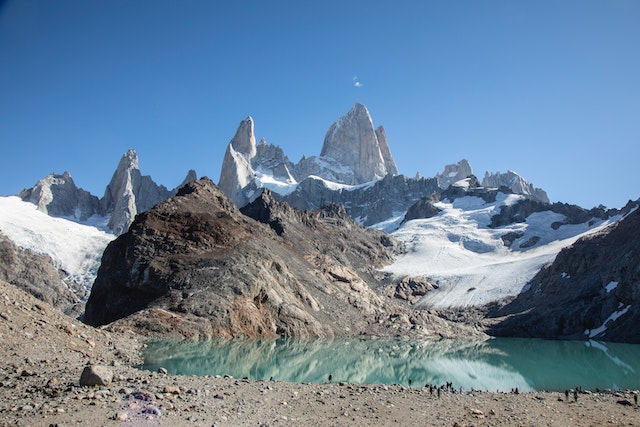
Stretching along Argentina’s western border, the Andes Mountains grace the country with their majestic presence.
Among its peaks stands the renowned Aconcagua, the highest mountain in the Western Hemisphere, reaching an impressive height of 22,837 feet (6,960 meters) above sea level.
This natural wonder attracts mountaineers and adventure seekers from all corners of the world, offering an awe-inspiring challenge.
Iguazu Falls: Nature’s Masterpiece
Located in the northeastern region, Iguazu Falls is a true spectacle of nature.
With a width of nearly two miles, these magnificent waterfalls cascade down with a thunderous roar, creating an awe-inspiring display of power and beauty.
The falls, surrounded by lush rainforests, have been declared a UNESCO World Heritage site, attracting visitors with their ethereal charm.
Tierra del Fuego: The Land of Fire
Nestled at the southernmost tip of Argentina lies Tierra del Fuego, a mystical region known as the “Land of Fire.”
This enchanting land offers a unique blend of rugged landscapes, pristine beauty, and a rich cultural heritage.
It is home to Ushuaia, the southernmost city in the world, which serves as a gateway to Antarctica for many adventurous explorers.
Cultural Marvels and Historical Milestones
Argentina’s vibrant culture and historical milestones are deeply ingrained in the nation’s identity, shaping its society and captivating the hearts of its people.
Tango: The Soulful Dance
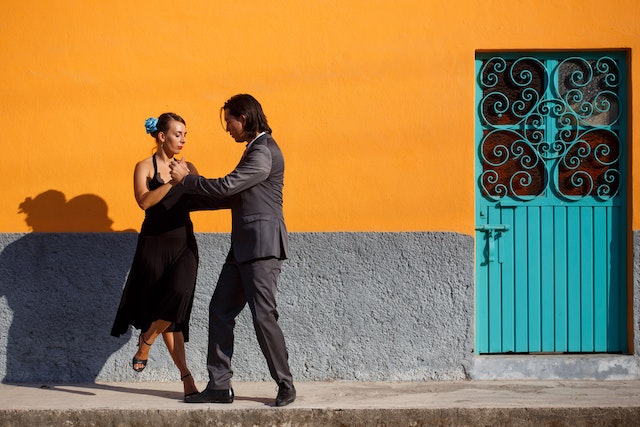
Argentina is famous for the passionate and evocative dance form known as Tango.
Born in the late 19th century in the working-class neighborhoods of Buenos Aires, Tango has become a symbol of Argentine culture worldwide.
Its sensuous movements and melancholic melodies enchant both locals and visitors, making it an integral part of Argentina’s cultural fabric.
Gauchos: Legendary Cowboys of Argentina
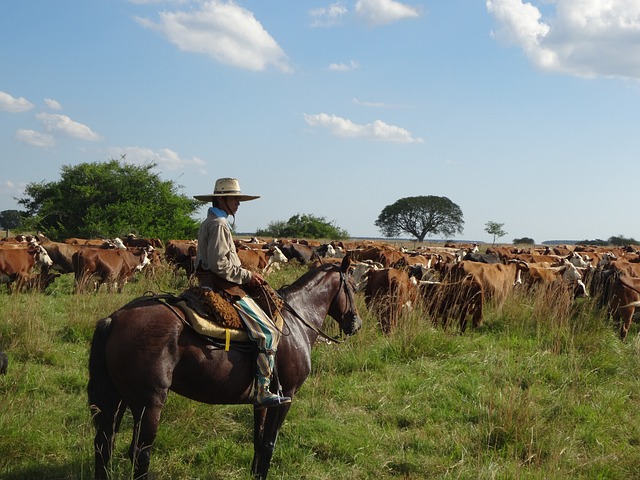
A defining image of Argentine folklore, gauchos are skilled horsemen who embody the spirit of the country’s vast rural landscapes.
These legendary cowboys, dressed in traditional attire, represent the independent and adventurous spirit of the Argentine people.
Their presence adds an authentic touch to the country’s rural regions, showcasing a way of life deeply rooted in tradition.
Casa Rosada: The Pink Presidential Palace
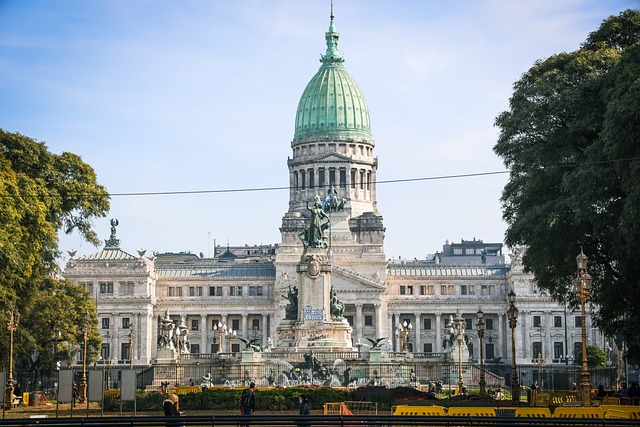
Standing proudly in Buenos Aires, Casa Rosada, or the Pink House, serves as the official seat of the President of Argentina.
This iconic landmark holds historical significance, as it was from its balcony that Eva Perón, a beloved figure in Argentine history, addressed the people.
Today, the Casa Rosada stands as a symbol of democracy and a reminder of Argentina’s complex political journey.
3 Frequently Asked Questions About Argentina
What is the Official Language of Argentina?
The official language of Argentina is Spanish. With its roots in the Spanish colonization of the region, the Spanish language permeates all aspects of Argentine society.
From everyday conversations to literature, music, and media, Spanish is the language that unites the diverse population of the country.
What are the Major Rivers of Argentina?
Argentina boasts a network of impressive rivers that traverse its vast landscapes.
Among the notable ones are the Paraná River, Uruguay River, and Paraguay River.
These waterways not only contribute to Argentina’s agricultural and economic prosperity but also provide opportunities for recreational activities such as river cruises and water sports.
What is the National Sport of Argentina?
Argentineans have a deep passion for sports, and football (soccer) holds a special place in their hearts.
Football is considered the national sport of Argentina, and the country has produced some of the world’s greatest football players, including the legendary Lionel Messi and the late Diego Maradona.
The passion for football is evident in the vibrant atmosphere of stadiums and the fervent support shown by fans across the country.
World Cup Glory and the Passion for Football
Football, or soccer, holds a special place in the hearts of Argentinians. The country’s national team has achieved remarkable success, including winning the FIFA World Cup multiple times.
The passion for football unites the nation and fuels the fervor of fans during international competitions.
A Global Football Powerhouse
Argentina’s prowess in football has earned the country a revered status in the sporting world.
The national team’s successes in international competitions, along with its celebrated players, have solidified Argentina’s position as a global football powerhouse.
The passion and talent displayed on the field have inspired millions and cemented Argentina’s reputation as a force to be reckoned with in the world of sports.
Argentina’s Historical Significance
Argentina’s history is a tapestry woven with significant events and influential figures that have shaped the nation’s identity and left a lasting impact.
The Dirty War: A Dark Chapter in Argentina’s History
During the 1970s and early 1980s, Argentina experienced a period of political turmoil and human rights abuses known as the Dirty War.
The country was under military rule, and thousands of individuals perceived as political dissidents or opponents of the regime forcefully disappeared.
This painful chapter in Argentina’s history serves as a reminder of the resilience and strength of the Argentine people in their pursuit of justice and human rights.
Juan Perón and Eva Perón: Icons of Peronism
Juan Domingo Perón and his wife, Eva Perón, played pivotal roles in shaping Argentina’s political landscape.
Also, Juan Perón served as the President of Argentina and established the political ideology known as Peronism, which emphasized social justice, workers’ rights, and economic independence.
Eva Perón, affectionately known as Evita, became an influential figure in her own right, championing social welfare programs and advocating for the rights of the working class.
Their legacy continues to resonate with the Argentine people to this day.
The Falkland Islands Dispute: A Complex Territory Issue
The Falkland Islands, known as the Malvinas in Argentina, has been a source of contention between Argentina and the United Kingdom.
This dispute over sovereignty led to a brief conflict in 1982 when Argentina attempted to reclaim the islands by force.
The issue remains unresolved, and the status of the Falkland Islands continues to be a sensitive topic in Argentine politics and international relations.
More Fun Facts About Argentina
The Marvels of Argentina’s Geography
Argentina’s geography is a testament to nature’s splendor and variety. From the Andes Mountains to the expansive plains, this land of immense beauty is a treasure trove for adventurers and nature enthusiasts.
Mountain Ranges: Majestic Peaks and Thrilling Escapades
Argentina boasts several awe-inspiring mountain ranges, including the Andes Mountains that stretch along its western border.
These majestic peaks attract mountaineers from around the world, offering exhilarating climbing experiences and unparalleled views.
From the snow-capped peaks to the hidden valleys, Argentina’s mountain ranges hold endless adventures.
Northern Argentina: A Hidden Gem of Cultural Diversity
The northern region of Argentina is a captivating blend of stunning landscapes and vibrant cultural traditions.
From the colonial architecture of Salta and the indigenous heritage of Jujuy to the mesmerizing Iberá Wetlands, this part of the country offers a glimpse into the rich tapestry of Argentina’s cultural mosaic.
Argentina’s Cultural Delights
Argentina’s cultural heritage is as diverse as its geography. From traditional customs to culinary delights, there are numerous aspects that make Argentina a fascinating cultural destination.
Yerba Mate: A Beloved Latin Beverage
Yerba Mate is a cultural symbol in Argentina. This herbal tea, derived from the leaves of the Ilex paraguariensis plant, is enjoyed by Argentinians in a traditional gourd and sipped through a metal straw called a bombilla.
Sharing mate is a social ritual, promoting a sense of camaraderie and connection among friends and family.
Tango and Its Passionate Rhythm
Tango, the sultry and emotive dance, has its roots deeply embedded in Argentine culture. Originating in the working-class neighborhoods of Buenos Aires.
Plus, the Tango has become an internationally renowned art form. Its seductive movements and heartfelt melodies capture the essence of Argentine passion and have captivated audiences worldwide.
Exploring Argentina’s Hidden Treasures
Argentina is home to vast national parks and natural wonders that showcase its extraordinary biodiversity and spellbinding landscapes.
Iguazu Falls: Nature’s Majestic Masterpiece

Located in the province of Misiones, Iguazu Falls is a true natural wonder.
These magnificent waterfalls, shared with neighboring Brazil, create a breathtaking spectacle as they cascade down with immense force and surround visitors with mist and rainbows.
Exploring the trails and admiring the falls from different angles is an unforgettable experience.
Perito Moreno Glacier: A Frozen Marvel
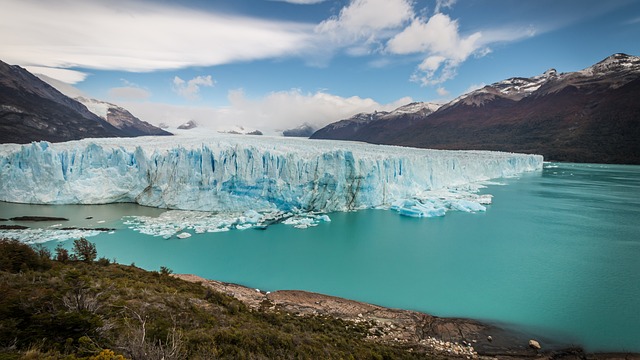
Nestled within Los Glaciares National Park, the Perito Moreno Glacier is a sight to behold.
This colossal ice formation showcases nature’s raw power and beauty.
Visitors can witness chunks of ice calving off the glacier into the turquoise waters below, creating a thunderous spectacle that leaves an indelible impression.
Argentina’s Historical Significance and Notable Figures
Argentina’s history is deeply intertwined with notable events, influential figures, and a rich tapestry of political and social transformations.
Pedro de Mendoza: The Founder of Buenos Aires
In 1536, Spanish conquistador Pedro de Mendoza established the first settlement in Argentina, founding the city of Buenos Aires.
This marked the beginning of Argentina’s colonial era and laid the foundation for the vibrant capital city that it is today.
Juan Perón: A Political Figure of Significance
Juan Perón, a prominent political figure, played a significant role in shaping Argentina’s modern history.
He served as the President of Argentina and was instrumental in implementing policies that focused on social justice, workers’ rights, and economic development.
Perón’s legacy and the political ideology known as Peronism continue to influence Argentine politics to this day.
Amerigo Vespucci: The Inspiration Behind Argentina’s Name
Argentina derives its name from the Latin word “argentum,” meaning silver. The name was given by the early European explorers who believed the region was rich in silver resources.
The Italian explorer Amerigo Vespucci, who visited the area in the early 16th century, is often associated with the origin of the country’s name.
Argentina’s Remarkable Landmarks and Unique Features
Argentina is renowned for its diverse range of landmarks, from architectural marvels to natural wonders that leave visitors in awe.
The Capital City of Buenos Aires: A Fusion of Old and New

Buenos Aires, the capital of Argentina, is a bustling metropolis that seamlessly blends old-world charm with a vibrant modern atmosphere.
From the grandeur of the iconic Casa Rosada to the lively neighborhoods of La Boca and Palermo, Buenos Aires exudes a unique energy that has earned it the title of the “Paris of South America.”
Political Parties and a Federal Republic
Argentina operates as a federal republic, with a multi-party political system. Various political parties play a crucial role in shaping the country’s governance and policies.
The diversity of political ideologies and parties reflects the democratic spirit that permeates Argentine society.
Argentina’s Natural Wonders and Environmental Richness
Argentina is blessed with an abundance of natural wonders, including diverse ecosystems and breathtaking landscapes.
The Pampas: Vast Plains and the Land of Argentine Beef
The expansive grasslands known as the Pampas are a defining feature of Argentina’s landscape.
These fertile plains support extensive agriculture and are renowned for the country’s world-famous beef production.
Argentine beef, with its exceptional flavor and quality, has become a gastronomic delight appreciated around the globe.
The Andean Condor: Majestic Guardian of the Mountains
The Andean Condor, the largest flying bird in the world, is a symbol of Argentina’s natural heritage.
This magnificent bird, with its impressive wingspan, can often be spotted soaring over the Andes mountain ranges, showcasing the country’s biodiversity and ecological richness.
Argentina’s Landmarks and International Influence
Argentina’s influence extends beyond its borders, making an impact on the global stage in various aspects.
Pope Francis: A Spiritual Leader from Argentina
Pope Francis, born Jorge Mario Bergoglio, hails from Argentina, making him the first Pope from the Americas.
His leadership and teachings have made a profound impact not only within the Catholic Church but also on a global scale.
Argentina’s Endearing Charm and Vibrant Culture
Argentina’s charm lies in its vibrant culture, warm hospitality, and captivating traditions.
Mate Tea: A Beloved Ritual

Mate tea, a traditional Argentine beverage, holds a special place in the hearts of locals.
The act of sharing mate, often accompanied by lively conversations and laughter, symbolizes friendship and unity.
The ritual of preparing and drinking mate is a cherished tradition that brings people together, fostering a sense of community and connection.
Cultural Melting Pot: European Descent and Native Influences
Argentina’s cultural landscape is shaped by a fusion of European influences and indigenous traditions.
The country has a significant population of European descent, particularly from countries like Italy and Spain, which has greatly influenced its language, cuisine, and customs.
This blending of cultures has created a unique Argentine identity that celebrates diversity and heritage.
Native Peoples and Indigenous Heritage
Argentina is home to diverse indigenous communities, each with its own unique traditions and languages.
These native peoples, such as the Mapuche, Quechua, and Guarani, have rich cultural legacies that are preserved and celebrated throughout the country.
Exploring their ancestral traditions and interacting with indigenous communities offers a deeper understanding of Argentina’s multicultural heritage.
The Longest Rivers and Lowest Point

Argentina is blessed with impressive waterways, including the Parana and Uruguay Rivers, which form natural borders with neighboring countries.
Additionally, the Paraguay River cuts through the northern regions of the country.
On the other end of the spectrum, Argentina’s lowest point is Laguna del Carbon, located in the province of Santa Cruz, which sits at 344 feet (105 meters) below sea level.
Argentina’s Remarkable Achievements and Progressive Values
Argentina has achieved significant milestones in various realms, reflecting its progressiveness and commitment to social change.
Same-Sex Marriage: A Trailblazer in Latin America
Argentina became the first country in Latin America to legalize same-sex marriage in 2010.
This landmark decision marked a significant step forward for LGBTQ+ rights in the region and showcased Argentina’s commitment to equality and inclusivity.
Cultural Heritage and Preservation: UNESCO World Heritage Sites
Argentina is home to numerous UNESCO World Heritage sites, preserving its cultural and natural treasures for future generations.
From the architectural wonders of Buenos Aires’ historic center to the stunning natural landscapes of Iguazu National Park and Los Glaciares National Park.
These sites contribute to Argentina’s global reputation as a custodian of world heritage.
Argentina’s International Relations and Global Significance
Also, Argentina’s influence extends beyond its borders, with active participation in international affairs and contributions to global initiatives.
Diplomatic Relations and Regional Cooperation
Argentina maintains diplomatic relations with countries across the globe and actively engages in regional cooperation, particularly within South America.
The country is a member of important regional organizations such as Mercosur and plays a significant role in promoting peace, stability, and economic integration in the region.
The Allure of Buenos Aires: The Capital’s Cultural Magnificence
Buenos Aires, the cosmopolitan capital city of Argentina, captivates visitors with its vibrant energy, artistic heritage, and architectural splendor.
Conclusion
Argentina, with its captivating landscapes, vibrant culture, and complex history, offers a tapestry of experiences for explorers and enthusiasts alike.
From the towering peaks of the Andes to the passionate rhythms of Tango, Argentina never fails to inspire awe and ignite curiosity.
Whether you find yourself immersed in the vibrant streets of Buenos Aires or exploring the breathtaking natural wonders of the country, you will encounter a nation rich in diversity, resilience, and a deep love for its people and heritage.
In conclusion, the fascinating facts about Argentina paint a picture of a country that defies expectations and captures the imagination.
With its vast territories, diverse ecosystems, and cultural treasures, Argentina beckons travelers to embark on a journey of discovery and exploration.
So, pack your bags and get ready to unravel the wonders of this enchanting South American gem. Argentina awaits with open arms and an abundance of unforgettable experiences.
Fact
One interesting fact about Argentina is that it is home to the world’s widest avenue, Avenida 9 de Julio, located in the heart of Buenos Aires.
This grand boulevard spans an impressive 140 meters (460 feet) and features iconic landmarks such as the Obelisco, a symbol of the city. The avenue’s width is a testament to Argentina’s ambition and grandeur.
Now discover more interesting places to visit from the the list below,
The Best 50 Interesting Facts About the Dominican Republic


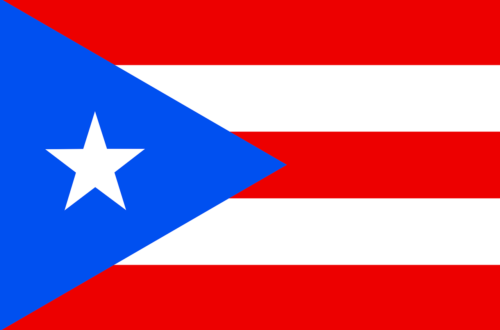


One Comment
Pingback: